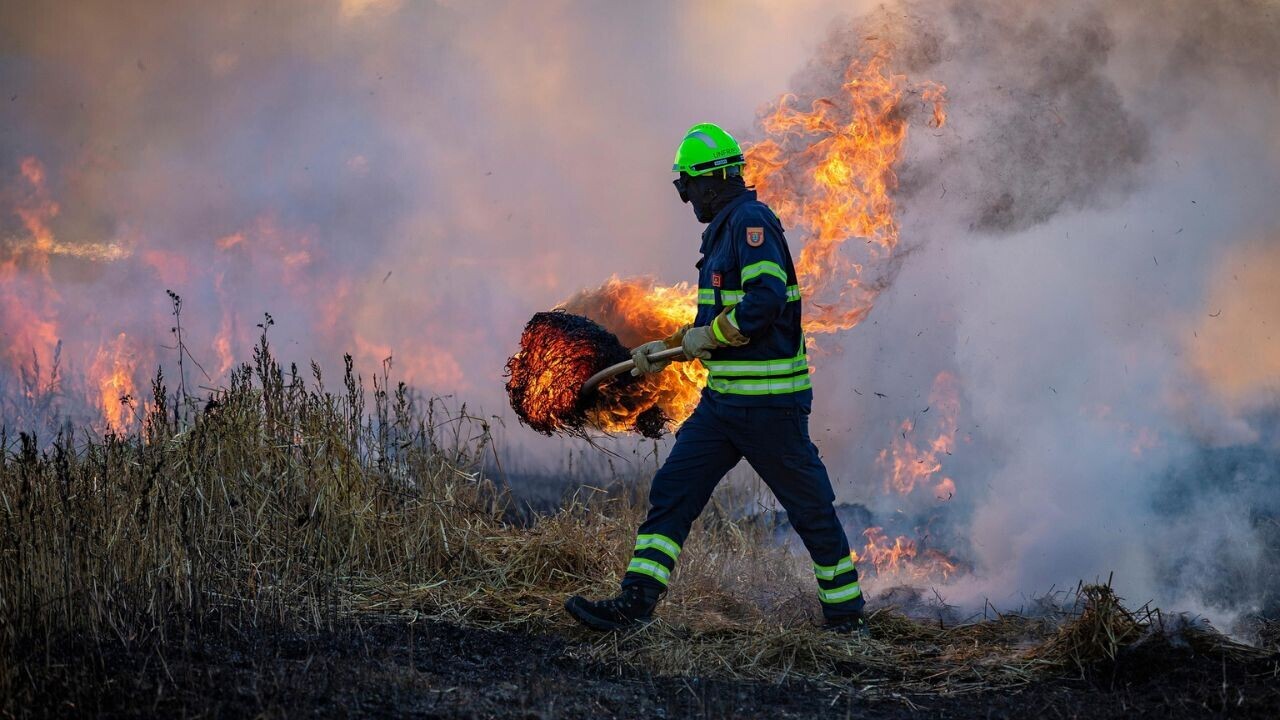
In the summer of 2018, a devastating fire tore through Greece’s Attica region. In its aftermath, four scientists from the University of Cambridge and Imperial College London — including two Greeks — set out to answer a simple yet crucial question: why did some houses burn while others were left untouched?
That question set off years of research into computer simulations for predicting wildfire risk and behaviour. In December 2023, the scientists founded Pinepeak to bring their idea out of the lab and into the market.
Pinepeak’s wildfire prediction technology combines machine learning algorithms trained on satellite data with cutting-edge physics-based modelling originally developed for jet engine research at the University of Cambridge.
Just as turbulence and air movement dictate how fuel ignites in an engine, they also play a crucial role in the spread of wildfires. By modelling the chaotic nature of wildfire spread and how it interacts with other factors like terrain and weather, Pinepeak can arrive at more accurate forecasts.
“Catastrophic wildfires are escalating due to climate change, but current risk assessment methods fall short of predicting how fires interact with their environment and spread from an ignition point towards communities,” Dr Savvas Gkantonas, CEO and co-founder of Pinepeak, told TNW.

Pinepeak’s algorithms forecast the probability that a wildfire will occur with up to 90% accuracy. They also predict how fires will spread — where they will go, what they will impact, and when all that might occur. The tool can do all this at an extremely high granularity, delivering wildfire risk forecasts down to the level of an individual home located anywhere in the world.
Gkantonas said that this kind of intelligence is “highly valuable” to everyone from property insurers to national governments and firefighters.
Now, Pinepeak is looking to scale up. The startup has just been admitted to an accelerator that might enable it to do just that.
Turning wildfire predictions into a successful startup
Pinepeak is one of eight startups to have been picked for the University of Cambridge’s second START Accelerator programme. Alongside a £40,000 upfront investment, the accelerator gives startups like Pinepeak access to mentorship from proven investors and founders.
Gkantonas said the programme is “helping accelerate our growth by connecting us with early customers, domain experts, and seed investors, enabling us to grow faster and smarter.” Last month, the company also nabbed $322,000 (£250,000) in pre-seed funding.
Other startups in the cohort include Podromic, which uses AI to predict dementia, and Trismik, which provides testing solutions for large language models (LLMs).
The startups are well located for success. Cambridge is the world’s third most valuable deep tech hub, only below Boston (Harvard, MIT, and Boston University) and the Bay Area, according to Dealroom data.
Last year’s START Accelerator saw 11 companies participate, including lithium-sodium battery startup Molyon, which recently raised $4.6mn (£3.5mn), as TNW previously reported.
The search for Europe’s next big startups is the guiding mission of TNW Conference, which takes place on June 19-20 in Amsterdam. Check out out our initial list of speakers and our early agenda for a taste of what’s to come. Tickets for the event are now on sale. Use the code TNWXMEDIA2025 at the check-out to get 30% off the price tag.
Get the TNW newsletter
Get the most important tech news in your inbox each week.




